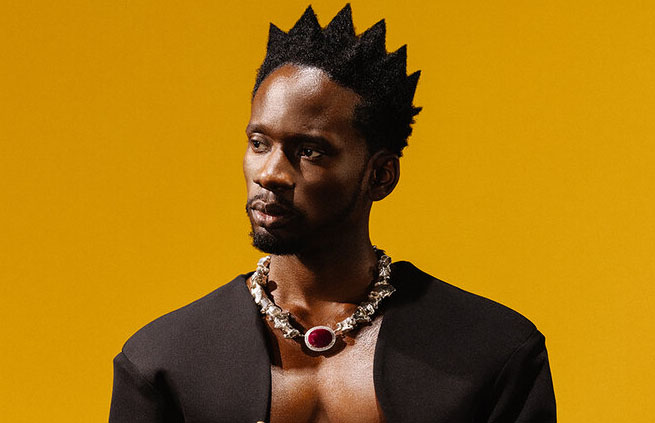
“One-Woman Man? It’s a Divine Gift” — Seyi Awolowo Stirs Debate with Loyalty Statement

In a society where the spotlight constantly shines on celebrities and their every word becomes public property, one reality TV star has once again ignited a fiery conversation that straddles morality, relationships, and the realities of modern romance. Seyi Awolowo, a former Big Brother Naija housemate and a name familiar to fans of the Nigerian entertainment scene, has boldly declared that “Concentrating on one woman is difficult, especially with the amount of beauties out there. The ability to be loyal to one is a gift from God.” With that single sentence, Seyi has opened the floodgates of public opinion and triggered waves of reaction across social media and pop culture circles.
The statement, though brief, is packed with layers of interpretation. On the surface, it may seem like an honest admission, a personal reflection on the modern man’s struggle with monogamy. But deeper, it touches on the ongoing societal discourse surrounding loyalty in relationships, the pressures of fame, and the expectations placed on male celebrities to portray themselves as loyal lovers or husbands. Coming from someone like Seyi — a well-groomed media personality, public speaker, and one of the most articulate alumni of the BBNaija franchise — it feels less like a careless quote and more like a deliberate take on what many men might be thinking but are too afraid to say.
Unsurprisingly, his statement has elicited strong reactions. Many have interpreted his words as a justification for unfaithfulness or a subtle confession of infidelity. Critics argue that normalizing disloyalty by attributing it to human weakness or temptation diminishes the value of commitment. “Loyalty is not a miracle or a gift,” one online user commented. “It’s a choice. Men need to stop using temptation as an excuse.” Others, however, have come to his defense, calling his statement a refreshing dose of honesty in a world filled with pretenses. “At least he’s being real,” another user posted. “Most men think it. He just said it.”
There’s no doubt that the reality of relationships, particularly in the limelight, is filled with challenges. For celebrities, the temptations are not theoretical — they are real and frequent. DMs from attractive strangers, fan encounters, access to exclusive events, and an elevated social status mean that opportunities to stray abound. The ability to resist all of that pressure requires more than just personal discipline — it demands a conscious commitment that not many are ready to embrace. In saying that loyalty is a gift from God, Seyi may be acknowledging that the struggle is not only human but spiritual.
This isn’t the first time Nigerian celebrities have sparked heated discussions around relationship loyalty. Over the years, a number of popular figures — both male and female — have shared their thoughts on fidelity, sometimes with consequences that range from public backlash to career damage. What makes Seyi’s case unique is his calm, almost philosophical take on the matter. He doesn’t glamorize cheating, nor does he outrightly condone it. Instead, he points out a reality: that in a world flooded with options, remaining loyal takes more than just good intentions.
His choice of words — “a gift from God” — adds a spiritual and perhaps moral dimension to the discussion. It raises questions about the role of faith and divine assistance in personal relationships. Is loyalty purely a human responsibility? Or is it, as Seyi implies, something that requires grace from a higher power? The Nigerian public, known for its blend of strong religious beliefs and ever-watchful moral lens, is likely to wrestle with that thought.
Some have gone further to suggest that statements like Seyi’s are part of a broader problem — one where men are rarely held accountable for their actions, and disloyalty is excused as “natural.” Feminist commentators and women’s rights advocates have weighed in, stating that framing loyalty as a divine gift could allow men to evade personal responsibility, casting themselves as helpless in the face of temptation. “No one is asking women how they stay loyal with all the fine men walking around,” a popular feminist blogger wrote in reaction. “Yet women are expected to be faithful, while men claim it’s too hard and blame nature or God.”
Still, others see the conversation as necessary. In a culture where many still shy away from open discussions about relationship struggles, especially among men, some applaud Seyi for at least opening the door. “Men are taught to be strong, to hide emotions, and to never admit weakness,” one relationship counselor commented. “If this quote starts conversations about emotional accountability, then it’s a step in the right direction.”
Whether intentional or not, Seyi Awolowo has added fuel to an ongoing fire — the evolving expectations of men in romantic relationships. With rising calls for emotional intelligence, accountability, and honesty, the modern man is increasingly being challenged to examine his values. For a long time, public perception has often been forgiving of male infidelity, painting it as a regrettable but forgivable trait. That narrative, however, is changing. Society is asking more of its men — not just in words, but in action.
What remains to be seen is how this moment affects Seyi’s public image. Will he be seen as a reflective thinker who dares to challenge unrealistic ideals? Or will he be criticized for giving voice to a problematic mindset? As the comments continue to flood in and debates rage across timelines, one thing is certain — Seyi Awolowo has started a conversation that won’t be ending anytime soon.
In a time where social media amplifies every word and turns offhand remarks into viral headlines, celebrities must be cautious about what they say and how they say it. But perhaps, amidst the noise, what Seyi has done is spark an honest national dialogue — one that dares to admit that monogamy, in all its beauty and difficulty, is still very much a mountain to climb, even for the most admired among us. Whether it is a gift from God or a personal decision, the demand for loyalty in relationships remains strong — and the scrutiny even stronger.


